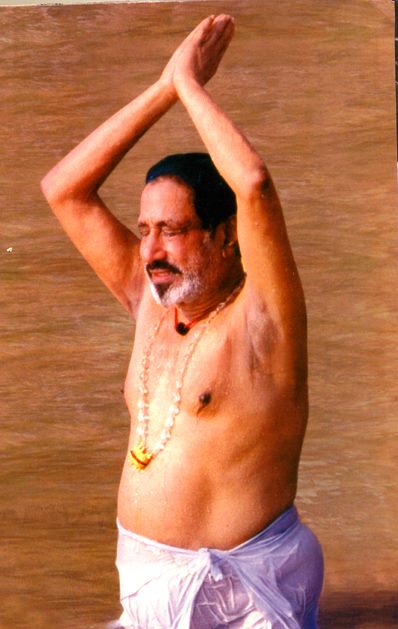
MANU ON STUDENTS WHO WILL BE BORN AS ANIMALS! (Post No.4973)
Written by London Swaminathan
Date: 3 May 2018
Time uploaded in London – 11-54 am (British Summer Time)
Post No. 4973
Pictures shown here are taken from various sources such as Facebook friends, Books, Google and newspapers; thanks. Pictures may be subject to copyright laws.
WARNING: PLEASE SHARE MY ARTICLES; BUT DON’T SHARE IT WITHOUT AUTHOR’S NAME AND THE BLOG NAME. BE HONEST; OTHERS WILL BE HONEST WITH YOU
Manu Smrti, in the second chapter, explains the duty of a student who is in the Guru Kula studying the Vedas. There some interesting points:
1.He gives a long list DOs and DONTs. He advises the students not to use perfume and not to learn dance and music. This is only applicable for the Brahmin students who learnt Vedas.
2.He says the students should beg and eat; sleep alone
- He talks about the distance to be maintained between him and the students.
- He says students will be born as ass or dog or worm or an insect if they insult the teacher in any manner.
(Please read my comments under each heading as well.)
Second Chapter of Manu Smrti continued……………..
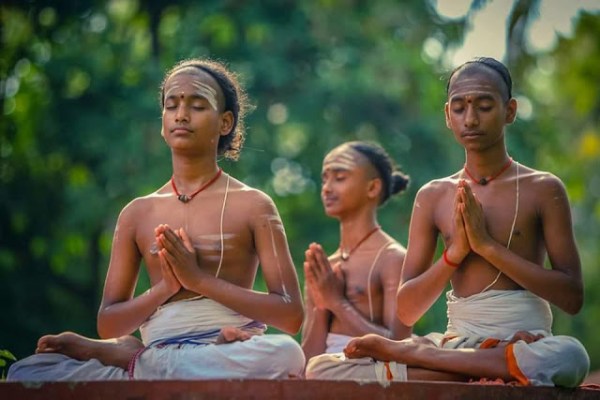
Good Vedic Students
DANCE AND MUSIC- NOT FOR VEDIC STUDENTS
2-175. But a student who resides with his teacher must observe the following restrictive rules, duly controlling all his organs, in order to increase his spiritual merit.
- Every day, having bathed, and being purified, he must offer libations of water to the gods, sages and manes, worship (he images of the gods, and place fuel on the sacred fire.
- Let him abstain from honey, meat, perfumes, garlands, substances used for flavouring food (condiments), women, all substances turned acid, and from doing injury to living creatures.
- From anointing his body, applying collyrium to his eyes, from the use of shoes and of an umbrella or parasol, from sensual desire, anger, covetousness, dancing, singing, and playing musical instruments,
- From gambling, idle disputes, backbiting, and lying, from looking at and touching women, and from hurting others.
My Comments:
Andal, a saint and poetess of Tamil Nadu, who lived 1400 years ago also mentioned the discipline that girls follow during the period of Vow (Vrata). Refer to Tiruppavai verse 2.
CELIBATE SUDENTS MUST SLEEP ALONE
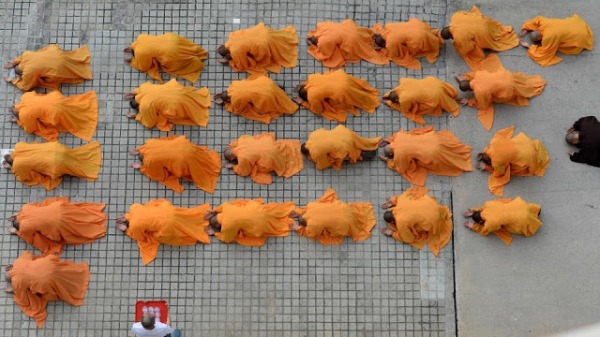
2-180. Let him always sleep alone, let him never waste his manhood; for he who voluntarily wastes his manhood, breaks his vow.
- A twice-born student, who has involuntarily wasted his manly strength during sleep, must bathe, worship the sun, and afterwards thrice mutter the Rik-verse which begins, ‘Again let my strength return to me.’
- Let him fetch a pot full of water, flowers, cowdung, earth, and Kusa grass, as much as may be required by his teacher, and daily go to beg food.
- A student, being pure, shall daily bring food from the houses of men who are not deficient in (the knowledge of) the Veda and in performing sacrifices, and who are famous for following their lawful occupations.
- Let him not beg from the relatives of his teacher, nor from his own or his mother’s blood-relations; but if there are no houses belonging to strangers, let him go to one of those named above, taking the last-named first;
- Or, if there are no virtuous men of the kind mentioned above, he may go to each (house in the) village, being pure and remaining silent; but let him avoid Abhisastas (those accused of mortal sin).
- Having brought sacred fuel from a distance, let him place it anywhere but on the ground, and let him, unwearied, make with it burnt oblations to the sacred fire, both evening and morning.
- He who, without being sick, neglects during seven successive days to go out begging, and to offer fuel in the sacred fire, shall perform the penance of an Avakirnin (one who has broken his vow).
My comment:
Hinduism is a very practical religion; they have atonement and escape strategy for every eventuality.

Guru Puja by good students
VEDIC STUDENTS MUST BEG AND EAT
2-188. He who performs the vow of studentship shall constantly subsist on alms, but not eat the food of one person only; the subsistence of a student on begged food is declared to be equal in merit to fasting.
- At his pleasure he may eat, when invited, the food of one man at a rite in honour of the gods, observing however the conditions on his vow, or at a funeral meal in honour of the manes, behaving however like a hermit.
- This duty is prescribed by the wise for a Brahmana only; but no such duty is ordained for a Kshatriya and a Vaisya.
My comment
By begging one becomes humble and always looking for support from the local community. More over less eating will keep oneself healthy in physique and mind. Walking is an exercise done during begging.
HOW TO BEHAVE WITH THE TEACHERS
2-191. Both when ordered by his teacher, and without a special command, a student shall always exert himself in studying the Veda, and in doing what is serviceable to his teacher.
- Controlling his body, his speech, his organs of sense, and his mind, let him stand with joined hands, looking at the face of his teacher.
- Let him always keep his right arm uncovered, behave decently and keep his body well covered, and when he is addressed with the words , ‘Be seated,’ he shall sit down, facing his teacher.
- In the presence of his teacher let him always eat less, wear a less valuable dress and ornaments than the former, and let him rise earlier from his bed, and go to rest later.
- Let him not answer or converse with (his teacher), reclining on a bed, nor sitting, nor eating, nor standing, nor with an averted face.
- Let him do that, standing up, if his teacher is seated, advancing towards him when he stands, going to meet him if he advances, and running after him when he runs;
- Going round to face the teacher, if his face is averted, approaching him if he stands at a distance, but bending towards him if he lies on a bed, and if he stands in a lower place.
- When his teacher is nigh, let his bed or seat be low; but within sight of his teacher he shall not sit carelessly at ease.
- Let him not pronounce the mere name of his teacher (without adding an honorific title) behind his back even, and let him not mimic his gait, speech, and deportment.
- Wherever (people) justly censure or falsely defame his teacher, there he must cover his ears or depart thence to another place.
My comment
Such a respect and reverence is seen nowhere in the world except India. Even today we can see it in the religious centres, but not in ordinary schools. Students must rise when the teacher enters the class room till I studied in the college. Western countries do it only in Judicial courts.
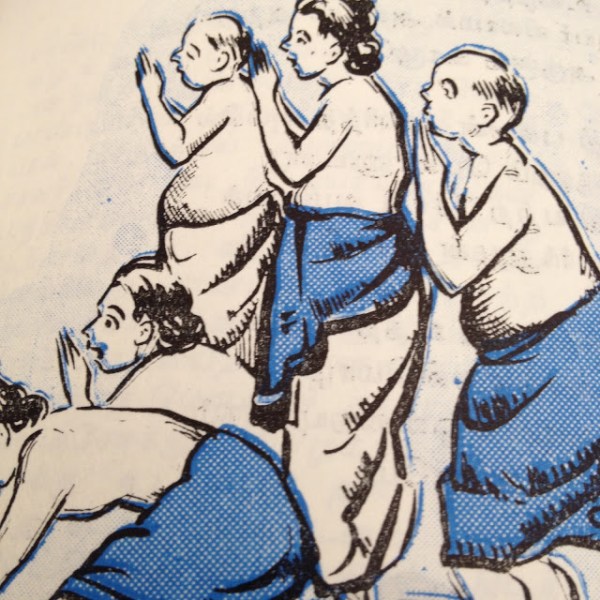
STUDENT BECOMES AN ASS, DOG, WORM AND INSECT
2-201. By censuring his teacher, though justly, he will become in his next birth an ass, by falsely defaming him, a dog; he who lives on his teacher’s substance, will become a worm, and he who is envious of his merit, a larger insect.
- He must not serve the teacher by the intervention of another while he himself stands aloof, nor when he himself is angry, nor when a woman is near; if he is seated in a carriage or on a raised seat, he must descend and afterwards salute his teacher.
- Let him not sit with his teacher, to the leeward or to the windward of him; nor let him say anything which his teacher cannot hear.
- He may sit with his teacher in a carriage drawn by oxen, horses, or camels, on a terrace, on a bed of grass or leaves, on a mat, on a rock, on a wooden bench, or in a boat.
- If his teacher’s teacher is near, let him behave towards him as towards his own teacher; but let him, unless he has received permission from his teacher, not salute venerable persons of his own family.
My comments:
You may take the meaning of verse 201 literally and think that it would happen in the next birth. My interpretation is such a student will have the badd qualities of animals mentioned.
Manu Smrti must be read in full with the commentaries and then one would wonder how come he thought about even the minutest details several thousand years ago. Manu is mentioned in the Rig Veda, the oldest book in the world; he is the first law giver, even before Hammurabi.
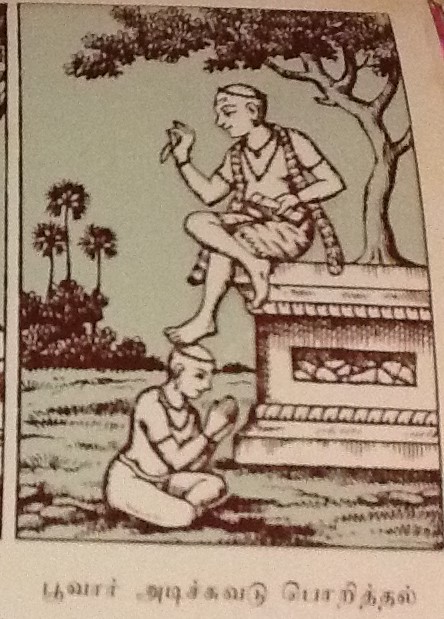
Tamil Saint Manikkavasagar receiving blessings from his Guru
–SUBHAM–











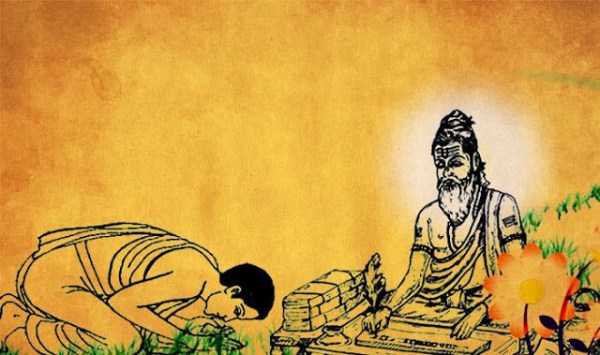







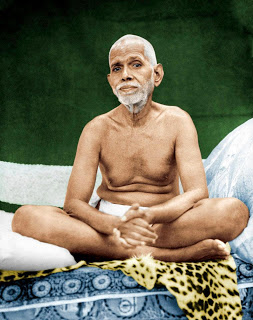

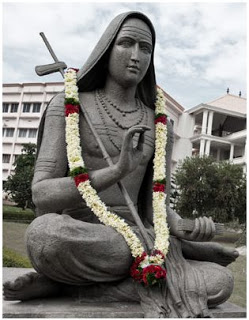
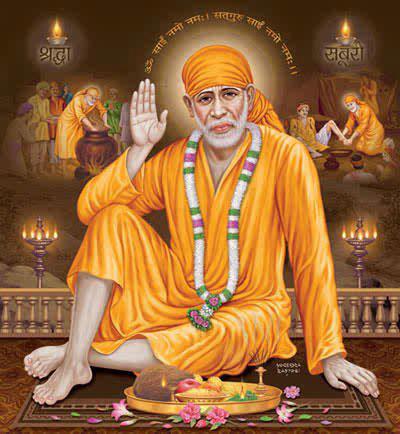
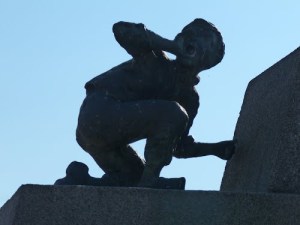




You must be logged in to post a comment.